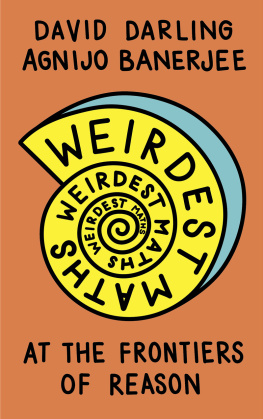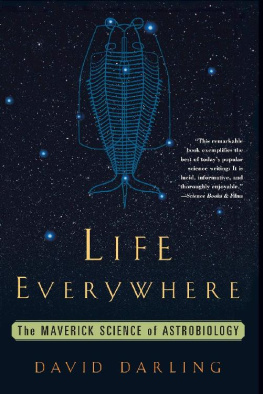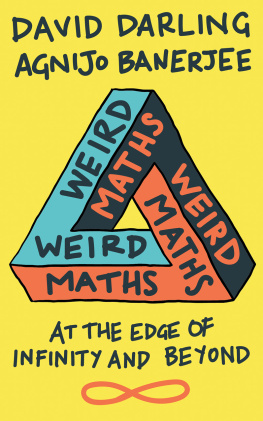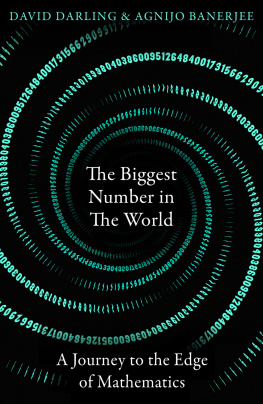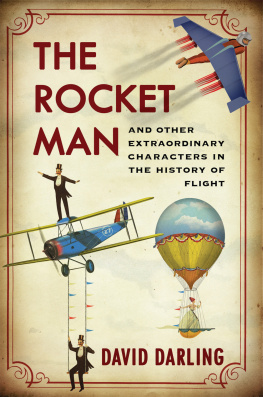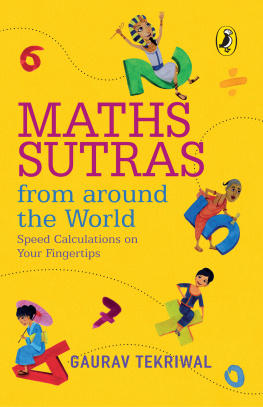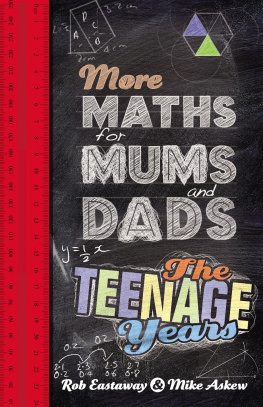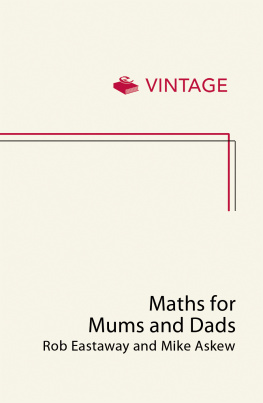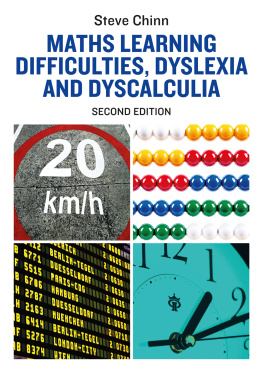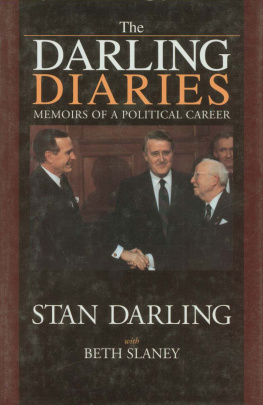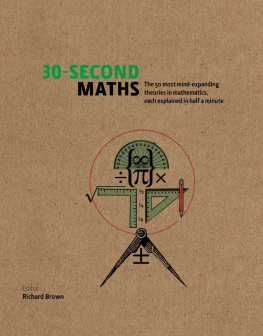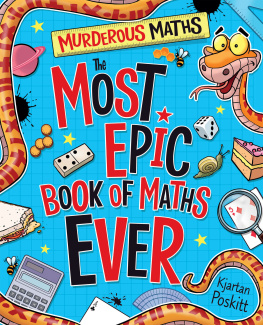David Darling - Weirdest Maths
Here you can read online David Darling - Weirdest Maths full text of the book (entire story) in english for free. Download pdf and epub, get meaning, cover and reviews about this ebook. year: 2020, publisher: Oneworld Publications, genre: Non-fiction. Description of the work, (preface) as well as reviews are available. Best literature library LitArk.com created for fans of good reading and offers a wide selection of genres:
Romance novel
Science fiction
Adventure
Detective
Science
History
Home and family
Prose
Art
Politics
Computer
Non-fiction
Religion
Business
Children
Humor
Choose a favorite category and find really read worthwhile books. Enjoy immersion in the world of imagination, feel the emotions of the characters or learn something new for yourself, make an fascinating discovery.
- Book:Weirdest Maths
- Author:
- Publisher:Oneworld Publications
- Genre:
- Year:2020
- Rating:5 / 5
- Favourites:Add to favourites
- Your mark:
- 100
- 1
- 2
- 3
- 4
- 5
Weirdest Maths: summary, description and annotation
We offer to read an annotation, description, summary or preface (depends on what the author of the book "Weirdest Maths" wrote himself). If you haven't found the necessary information about the book — write in the comments, we will try to find it.
Weirdest Maths — read online for free the complete book (whole text) full work
Below is the text of the book, divided by pages. System saving the place of the last page read, allows you to conveniently read the book "Weirdest Maths" online for free, without having to search again every time where you left off. Put a bookmark, and you can go to the page where you finished reading at any time.
Font size:
Interval:
Bookmark:


David has a PhD in astronomy from the University of Manchester. For the past thirty-five years hes been a freelance science writer and is the author of nearly fifty books on subjects such as cosmology, physics, philosophy, and mathematics. His website www.daviddarling.info , and YouTube channel, discovermaths, are widely used online resources. He also tutors students in maths and physics, which is how he first met Agnijo at the age of thirteen.
Agnijo was born in Kolkata, India, but has spent most of his life in Scotland. His extraordinary mathematical talents were recognised at an early age. In 2018 he came joint first in the International Mathematical Olympiad, recording a perfect score and affirming his status as one of the worlds most outstanding young mathematicians. He is now continuing his studies at Trinity College, Cambridge.

The difference between the poet and the mathematician is that the poet tries to get his head into the heavens while the mathematician tries to get the heavens into his head.
G. K. Chesterton
Mathematical truth is immutable; it lies outside physical reality This is our belief; this is our core motivating force.
Joel Spencer
If I had a dollar for every time algebra has helped me, Id have x dollars.
Anonymous
We began writing our first book together when one of us was a 61-year-old science writer and the other a 15-year-old schoolboy. It seemed an unlikely combination but Agnijo was no ordinary teenager. His father, whod heard that I (David) do some tutoring in maths and science, asked if Id be available to work with Agnijo to help develop his wider knowledge of maths, modern physics, and areas where science and philosophy overlap. His school was running out of things to teach him and he was taking exams four years ahead of his age group (nearly always scoring full marks).
From the outset, it was clear that Agnijo had outstanding abilities. He could perform extraordinary feats of mental arithmetic and had a phenomenal memory. The first time he came to me I lent him a copy of a book Id written about ten years before called The Universal Encyclopedia of Mathematics , a fairly dense 400-page A-to-Z of everything under the mathematical sun. A week later he brought the book back not only had he read it and memorised large chunks but hed also found several minor mistakes! From then on, our sessions werent so much conventional tutorials as they were conversations at a graduate level, on everything from the nature of dark energy to ways of naming numbers vast beyond imagination.
At some point in 2015 I suggested to Agnijo that we write a book together, dividing up the chapters according to our special interests and cross-checking each others work. Fortunately, my publisher, Oneworld, saw the merit in our unusual partnership. Our proposal was accepted and the start of 2018 saw the fruits of our collaboration Weird Maths appear in print.
If any seventeen-year-old mathematicians have had a bigger year than Agnijo did in 2018, they must be few and far between. Shortly after becoming a published author, Agnijo was selected for the UK team at the prestigious Balkan Mathematical Olympiad and then to represent Britain at the 2018 International Mathematical Olympiad. His one and only appearance at an IMO saw him take joint first place with a perfect score the best result by a UK competitor in twenty-four years. No sooner had he returned to Britain than he was on his travels again, this time to India with his family, to help promote a new edition of Weird Maths there. As if that were not enough, he had only a few weeks to recover after coming back to British soil before starting his maths degree at Trinity College, Cambridge, the alma mater of so many of his mathematical heroes, including Srinivasa Ramanujan, G. H. Hardy, and Charles Babbage.
In Weirdest Maths , the final book of the Weird Maths trilogy, we trek far and wide across the landscape of this strangest and most wonderful subject. We explore the maths of sport, life, and the universe as a whole. We ask what makes a mathematical genius and follow the adventures of Agnijo from elementary school prodigy to first place in the worlds greatest maths competition. We look at maths in fiction, examine the claim that beauty is a reliable guide to truth, and ask what mathematicians may accomplish over the decades ahead.
To many people maths may seem a dull, hard subject one of the necessary evils of school to be avoided later on as much as possible. But maths is infinitely greater than a system of calculation. It permeates everything around and within us music, art, the natural world, and the human mind forming an invisible infrastructure of reality. Mathematics, far from being dry and difficult, is vibrant and fascinating, as wonderful as it is weird.
Talent is a flame. Genius is a fire.
Bernard Williams
When he was six, John von Neumann could multiply and divide two 8-digit numbers in his head. A couple of years later hed progressed to solving tough problems in differential and integral calculus. Hed also amuse his parents friends by chatting in ancient Greek or reciting whole pages of a telephone directory that hed memorised at a glance early signs of the startling ability that would blossom in adulthood. Economist Paul Samuelson said of von Neumann that he had the fastest mind of anyone hed met. Polish-born British mathematician Jacob Bronowski, in the 1973 documentary series The Ascent of Man , considered him the cleverest man I ever knew, without exception (the second cleverest he judged to be Italian-American physicist Enrico Fermi).
These days genius is a much overused label. Its also, like beauty, an imprecise one thats partly in the eye of the beholder. The claim to be able to measure the threshold of genius with a single number an intelligence quotient or IQ just doesnt bear scrutiny. A commonly applied type of IQ test, based on the work of French psychologist Alfred Binet in the early twentieth century, puts a figure of 100 or thereabouts on average intelligence and rates genius as anything above about 160. But like the cryptic crossword puzzles in a newspaper, IQ tests are things you get better at with practice and age (up to a point). They also favour certain types of thinker. Whod feel happy about ranking the relative genius of Beethoven, Picasso, and Einstein based, say, on their scores in the entrance test to Mensa? Richard Feynman, by common consent one of the brightest theoretical physicists of the twentieth century, and co-winner of the 1965 Nobel Prize for Physics (with Julian Schwinger and Sin-Itiro Tomonaga), managed just 125 in a high school IQ test. My co-author, Agnijo, took the Mensa entrance test at age twelve and achieved a maximum possible score of 162, putting him ahead of Stephen Hawking at the same age. But hes modest enough to recognise that such comparisons are meaningless unless a great intellect is turned to good use later in life.
What is genius and, in particular, mathematical genius? Does the potential for it lie within each of us if only we knew how to tap it? Or does the spark of genius have to be there from the start, in the makeup of an individuals brain? There are no easy answers because the forms in which exceptional ability and achievements come are so varied.
Font size:
Interval:
Bookmark:
Similar books «Weirdest Maths»
Look at similar books to Weirdest Maths. We have selected literature similar in name and meaning in the hope of providing readers with more options to find new, interesting, not yet read works.
Discussion, reviews of the book Weirdest Maths and just readers' own opinions. Leave your comments, write what you think about the work, its meaning or the main characters. Specify what exactly you liked and what you didn't like, and why you think so.

